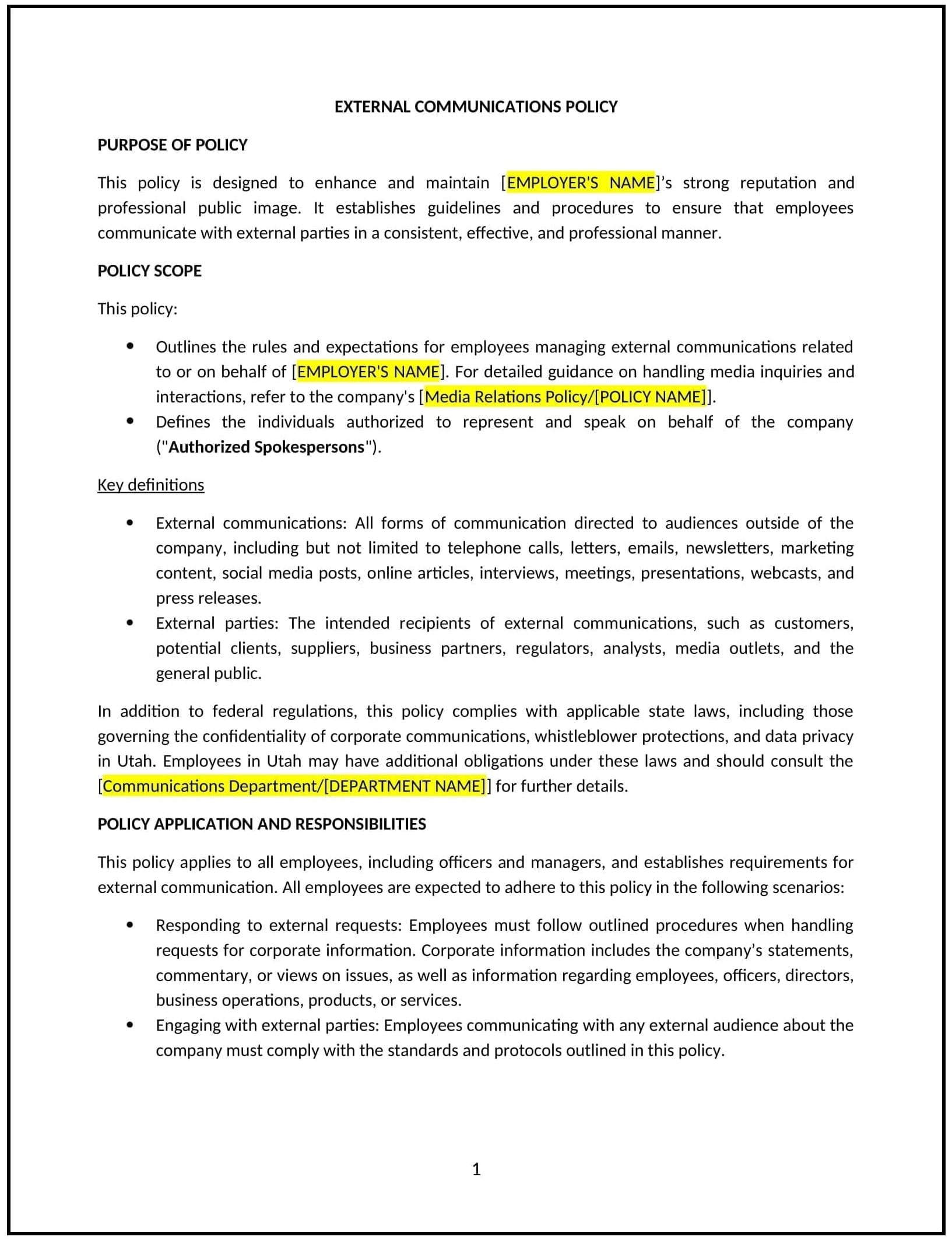External communications policy (Utah): Free template
Got contracts to review? While you're here for policies, let Cobrief make contract review effortless—start your free review now.

Customize this template for free
External communications policy (Utah)
This external communications policy is designed to help Utah businesses establish guidelines for communicating with external parties, such as customers, media, or partners. It outlines procedures for maintaining consistency, accuracy, and professionalism in all external communications.
By adopting this policy, businesses can protect their reputation, ensure clear messaging, and align with general best practices for external communication.
How to use this external communications policy (Utah)
- Define scope: Specify which types of external communications are covered, such as press releases, social media posts, or customer emails.
- Establish approval processes: Outline steps for reviewing and approving external communications before they are shared.
- Maintain consistency: Ensure all communications align with the business’s brand voice, values, and messaging.
- Address confidentiality: Prohibit the sharing of sensitive or proprietary information in external communications.
- Train employees: Educate employees on the policy and their roles in maintaining professional external communications.
- Monitor compliance: Regularly review external communications to ensure adherence to the policy.
- Review and update: Assess the policy annually to ensure it aligns with evolving business needs and communication trends.
Benefits of using this external communications policy (Utah)
This policy offers several advantages for Utah businesses:
- Protects reputation: Ensures all external communications are professional, accurate, and aligned with the business’s values.
- Maintains consistency: Provides clear guidelines for maintaining a consistent brand voice and messaging.
- Reduces risks: Minimizes the potential for miscommunication or the release of sensitive information.
- Aligns with best practices: Offers a structured approach to managing external communications.
- Enhances credibility: Builds trust with customers, partners, and stakeholders through clear and professional communication.
Tips for using this external communications policy (Utah)
- Communicate the policy: Share the policy with employees and include it in the employee handbook.
- Provide training: Educate employees on the policy and their roles in maintaining professional external communications.
- Monitor compliance: Regularly review external communications to ensure adherence to the policy.
- Address issues promptly: Take corrective action if external communications violate the policy.
- Update regularly: Assess the policy annually to ensure it aligns with evolving business needs and communication trends.